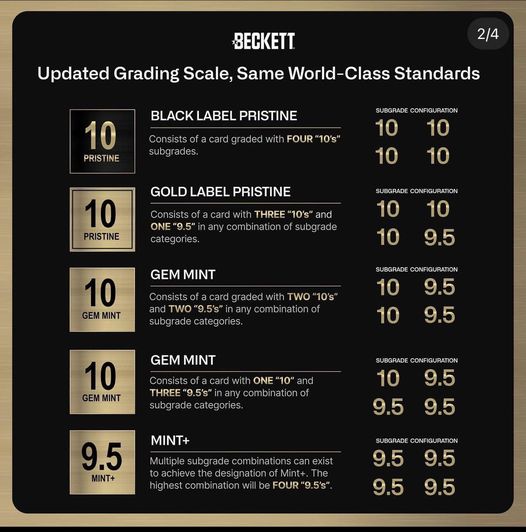Beckett Grading Services (BGS), a prominent name in sports card grading, finds itself in turbulent waters as it grapples with a series of challenges. The company’s grading numbers have taken a significant hit, with a sharp decline in card evaluations compared to previous years. Notably, BGS graded only 32,000 cards in November, marking a substantial 32% drop from October and a staggering 43% decline year-over-year, indicating a troubling trend for the once-thriving company.
The situation has been further complicated by the legal troubles surrounding Greg Lindberg, the owner of Beckett’s parent company. Lindberg’s involvement in a $2 billion insurance fraud scheme has cast a shadow of uncertainty over the company’s financial stability. Revelations of financial mismanagement, including securing a $100 million loan against BGS with minimal returns, have raised concerns about Beckett’s future, with the possibility of liquidation looming as Lindberg’s actions come under scrutiny.
Amid these challenges, Beckett’s position in the competitive grading industry has been severely impacted. The company faces stiff competition in a market experiencing significant growth, with other grading firms capitalizing on the industry’s upward trajectory. In contrast to its counterparts, Beckett has failed to leverage this momentum, resulting in a decline in its ranking among the “Big Four” grading companies.
While Beckett has traditionally excelled in grading high-quality cards, particularly in niche markets like TCGs, its failure to adapt to changing market dynamics has led to a loss of ground to competitors. Despite its strength in grading ultra-high-grade cards like Black Label 10s and Pristine 10s, Beckett’s higher pricing and lack of promotional efforts have made it less competitive in the current landscape.
The company’s diminishing role in grading iconic cards, once a cornerstone of its business, further underscores its struggles to retain market share. Beckett’s competitors have intensified their promotional activities, diverting attention from its offerings and eroding its historic stronghold in grading legendary cards. As a result, Beckett’s overall grading activity for marquee items has declined, signaling a broader trend of waning influence in the industry.
While Beckett continues to hold a presence in specific niches such as high-end basketball cards, TCG grading, and limited-release cards like Topps Now, the challenges it faces require a strategic reevaluation of its business approach. The company’s reputation for premium grades remains valuable in certain markets, but the overall decline in grading volume suggests underlying systemic issues that must be addressed to secure its future relevance.
As Beckett Grading Services navigates a tumultuous period marked by legal entanglements, increased competition, and shifting market dynamics, the road ahead remains uncertain. The company’s ability to pivot, adapt, and regain its competitive edge amidst mounting challenges will determine its fate in an industry experiencing rapid transformation. Observers and collectors alike will be closely monitoring Beckett’s next steps to see if it can emerge from its current predicament and restore its position as a key player in the sports card grading landscape.

